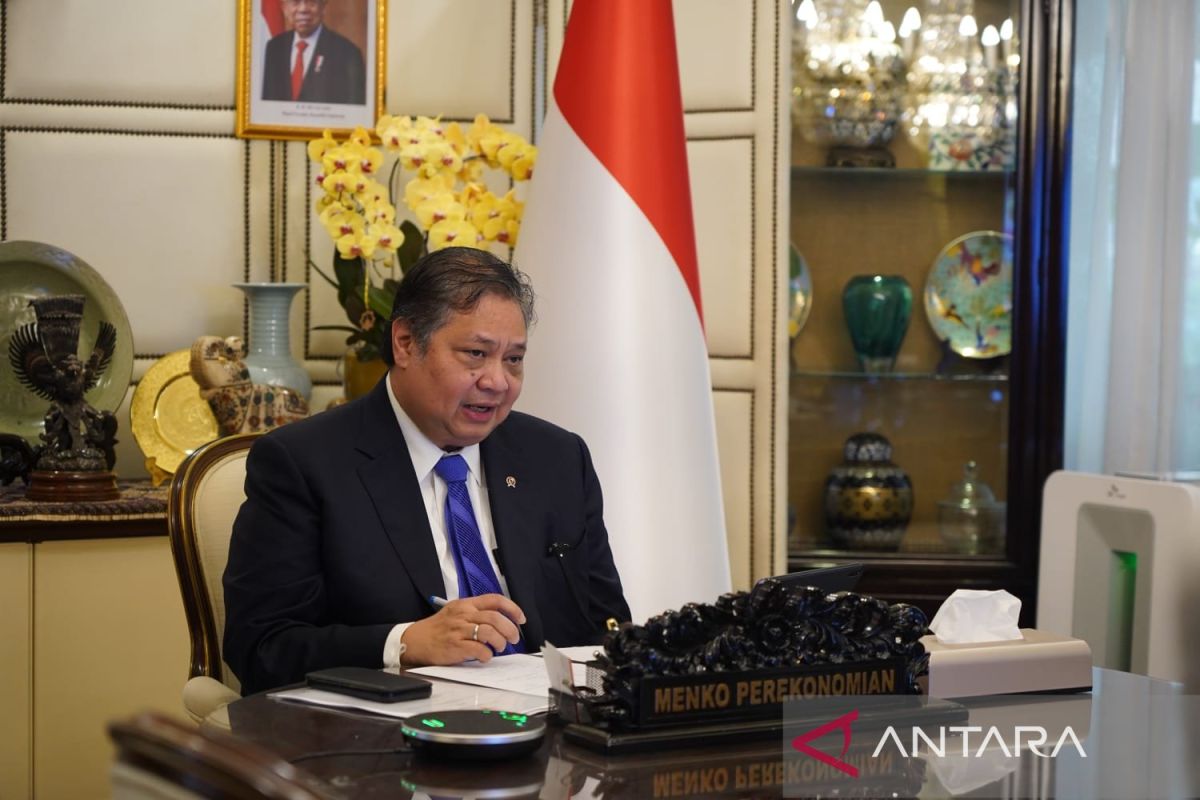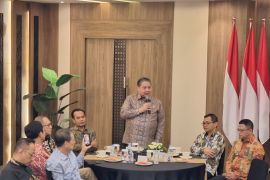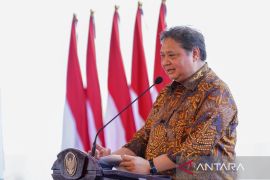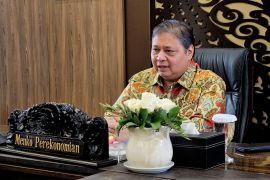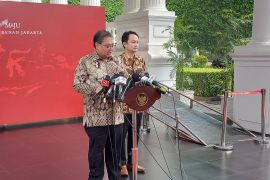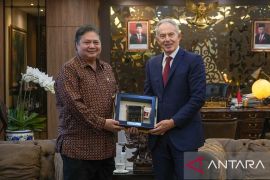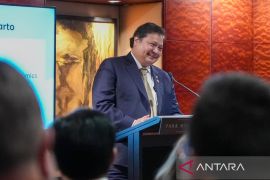Coordinating Minister for Economic Affairs, Airlangga Hartarto, delivered the remarks virtually at the "High-Level Thematic Roundtable on Digital Innovations for Achieving the Sustainable Development Goals (SDGs)," which was organized as part of the 80th session of the Economic and Social Commission for Asia and the Pacific on Tuesday.
"We are focusing on realizing a productive, advanced, and high-value added business ecosystem through priority economic sectors' digitalization. Including a special focus on MSME (micro, small, and medium enterprise) empowerment and technology start-up companies as well as stronger cybersecurity," he informed.
To prepare this ecosystem for the future, the minister said that Indonesia is strengthening its commitment to comprehensive research and development (R&D) and technological innovation.
The government has also launched a White Paper on Digital Economic Development 2030, a multi-stakeholder strategy involving institutions, associations, academics, and industry to determine the direction of future digital travel, he added.
Moreover, Indonesia has partnered with the relevant authorities to secure financial inclusion and ensure better access to financial services for all levels of society, Hartarto said.
To support these efforts, the government is improving regulations, policies, and governance to ensure a healthy and fair digital economy, supported by consumer protection and national security efforts, the minister added.
According to him, Indonesia is taking advantage of digital innovation through the Pre-Employment Card Program, which is a government-to-people (G-to-P) platform for human resource development.
"The Pre-Employment Card Program is a work competency development program to improve work and entrepreneurship competencies of job seekers, working employees, and laid-off workers," Hartarto explained.
During the COVID-19 pandemic, the program also helped increase competency and secure people's purchasing power.
In addition, the program has strengthened other SDG targets, namely quality education and lifelong learning opportunities, gender equality and women's empowerment, as well as encouraged poverty alleviation, Hartarto noted.
As per records, the Pre-Employment Card Program has benefited 18.7 million Indonesians residing in 514 districts/cities in 38 provinces, with 51 percent of participants being women, 12 percent of participants aged over 50 years, and 3 percent of participants being people with disabilities.
At the end of the presentation, the minister expressed his gratitude for the opportunity given to Indonesia to share its experiences in the digital economy and its role in achieving sustainable development.
Related news: Indonesia has great potential in digital economy: Deputy minister
Related news: Ministry plans on building digital creative hub for Acehnese youths
Related news: KPPU to cooperate with all parties to supervise business competition
Translator: Bayu Saputra, Resinta Sulistiyandari
Editor: Azis Kurmala
Copyright © ANTARA 2024
